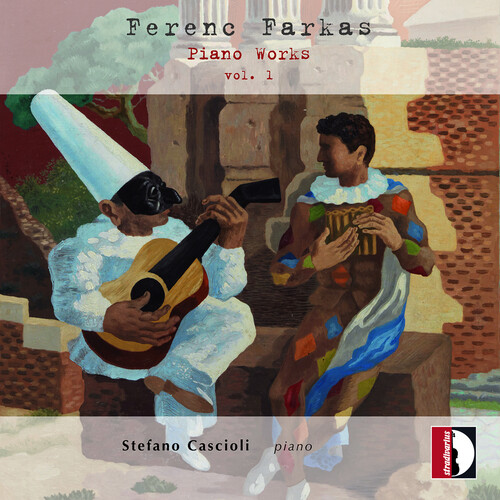Show results for
Deals
- 4K Ultra HD Sale
- Action Sale
- Alternative Rock Sale
- Anime sale
- Award Winners Sale
- Bear Family Sale
- Blu ray Sale
- Blues on Sale
- British Sale
- Classical Music Sale
- Comedy Music Sale
- Comedy Sale
- Country Sale
- Criterion Sale
- Electronic Music sale
- Fantasy Film and TV
- Folk Music Sale
- Hard Rock and Metal Sale
- Horror Sci fi Sale
- Jazz Sale
- Kids and Family Music sale
- Kids and Family Sale
- Metal Sale
- Music Video Sale
- Musicals on Sale
- Mystery Sale
- Naxos Label Sale
- Page to Screen Sale
- Paramount Sale
- Pop and Power Pop
- Rap and Hip Hop Sale
- Reggae Sale
- Rock and Pop Sale
- Rock Legends
- Soul Music Sale
- TV Sale
- TV Sale
- Vinyl on Sale
- War Films and Westerns on Sale

Piano Works Vol. 1
- Format: CD
- Release Date: 9/15/2023

Piano Works Vol. 1
- Format: CD
- Release Date: 9/15/2023
- Composers: Ferenc Farkas
- Label: Stradivarius
- UPC: 8011570372611
- Item #: 2633888X
- Genre: Classical Artists
- Release Date: 9/15/2023

Product Notes
After deepening the piano works of Francesco Pennisi; Stefano Cascioli undertakes the exploration of the work of the Hungarian composer Ferenc Farkas (1905-2000). He now comes out for Stradivarius Farkas and Italy. Baroque suggestions; first volume of the series with the publication of the integral for piano. The Hungarian composer Ferenc Farkas (1905-2000) had particularly close ties to Italy. This; however; was not only of decisive importance in his career but also an influence on the development of Hungarian music history through his students, which even indirectly left a mark on European music. Farkas was the head of the composition department of the Budapest Academy of Music from 1949 to 1975; and his class produced such excellent composers as György Ligeti; György Kurtág; Emil Petrovics; Sándor Szokolay; Miklós Kocsár; Zoltán Jeney; Zsolt Durkó; and Attila Bozay. His legendary lessons played an important role in turning the interest of Hungarian composers toward Latin culture and loosening the grip of the German influence that lasted for centuries. Farkas followed Respighi's example both in his approach and in his referencing the musical past; but in terms of style Alfredo Casella and Gian Francesco Malipiero were closer to him. His songs and chamber works were soon successfully presented in the Italian capital; where the Teatro Indipententi performed the comedy of Amelia Della Pergola (stage name Diotima) Non ci sono più donne with his music on March 15, 1930.

